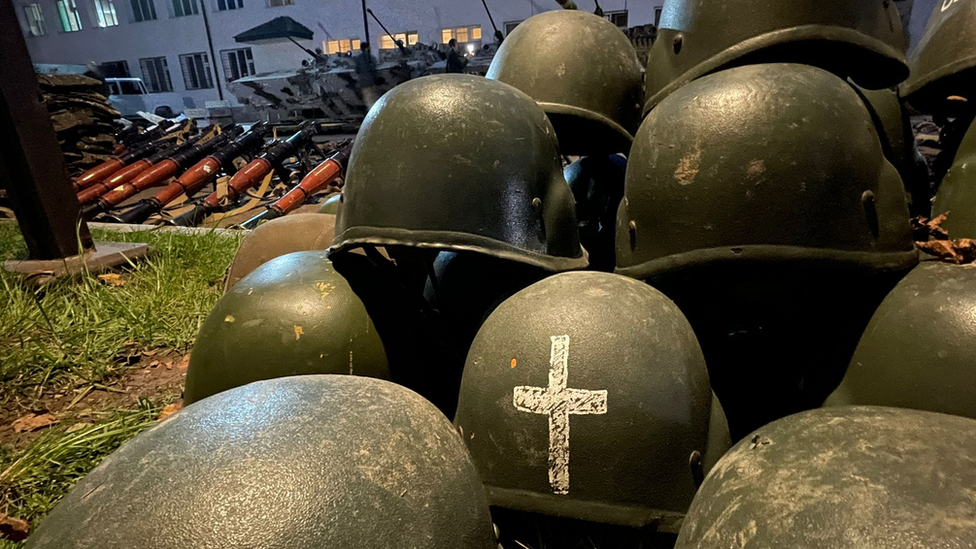Nagorno-Karabakh: Azerbaijan arrests former Karabakh leader
- Published
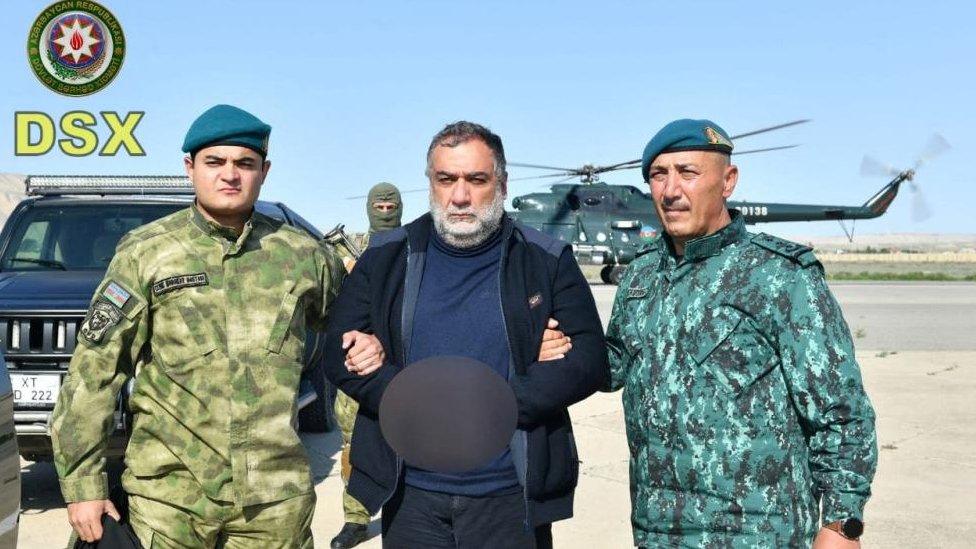
Azerbaijan's state border service released this image on Wednesday showing Ruben Vardanyan being detained
Azerbaijan has arrested a former leader of Nagorno-Karabakh as he tried to leave the enclave for Armenia, officials say.
Ruben Vardanyan, a businessman who headed the separatist government from November 2022 until February, was among thousands trying to leave.
Around 50,000 ethnic Armenians have now fled Nagorno-Karabakh, which was seized by Azerbaijan last week.
Mr Vardanyan's wife appealed for support to ensure his safe release.
"Ruben has stood with the Arsakh people during the 10-month blockade and has suffered with them in their struggle for survival," said Veronika Zonabend.
Azerbaijan's border service said he had been taken to the capital, Baku, and handed over to other state agencies.
As they crossed the border on Tuesday, thousands of ethnic Armenians were subject to rigorous checks from Azerbaijani border control.
Azerbaijani authorities claimed to be looking for "war crimes" suspects, and one government source told Agence France Presse news agency that the country intended to apply an "amnesty to Armenian fighters who laid down their arms in Karabakh".
"But those who committed war crimes during the Karabakh wars must be handed over to us," they said.
Nagorno-Karabakh is recognised as part of Azerbaijan and had been controlled by ethnic Armenians for three decades.
Fears of fresh violence came when Azerbaijan mounted an effective blockade of a vital route into the enclave in December 2022.
On 20 September, a ceasefire brought 24 hours of fighting to an end. Azerbaijan and the Karabakh authorities have started talks about the integration of the enclave into Azerbaijan.
But many of the region's 120,000 ethnic Armenians fear they have no future in Nagorno-Karabakh. Armenia's prime minister said "ethnic cleansing" had started in the region.
Karabakh authorities said at least 200 people had died in last week's fighting, while Azerbaijan said on Wednesday that 192 of its soldiers had been killed.
Traffic jams have lined the road out of Karabakh towards Armenia for days and a BBC team saw families crammed into cars, boots overflowing and roof-racks piled high with belongings.
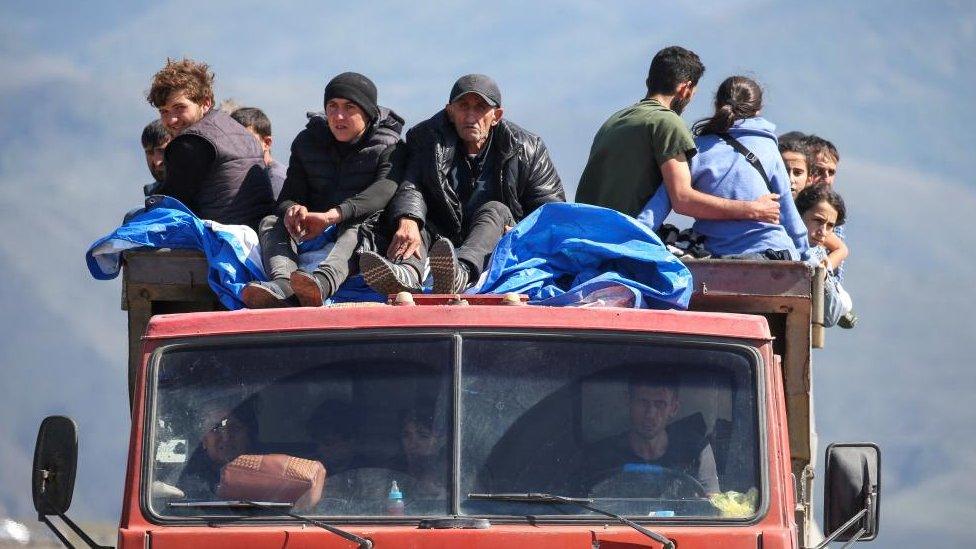
Refugees from Nagorno-Karabakh ride in a truck to the border village of Kornidzor in Armenia
Western governments have been pressing Azerbaijan to allow international observers into Karabakh to monitor its treatment of the local population.
Germany became the latest country to join these calls on Tuesday, with Foreign Minister Annalena Baerbock calling for "transparency".
"It would be a sign of confidence that Azerbaijan is serious about its commitments to the security and well-being of the people of Nagorno-Karabakh if it allows international observers," she said on X, formerly known as Twitter.
Also on Tuesday, US Secretary of State Antony Blinken urged Azerbaijan's President, Ilham Aliyev, to provide "unconditional protections and freedom of movement for civilians". He also called for "unhindered humanitarian access to Nagorno-Karabakh".
UN Secretary General Antonio Guterres also urged both sides to respect human rights.
- Published27 September 2023
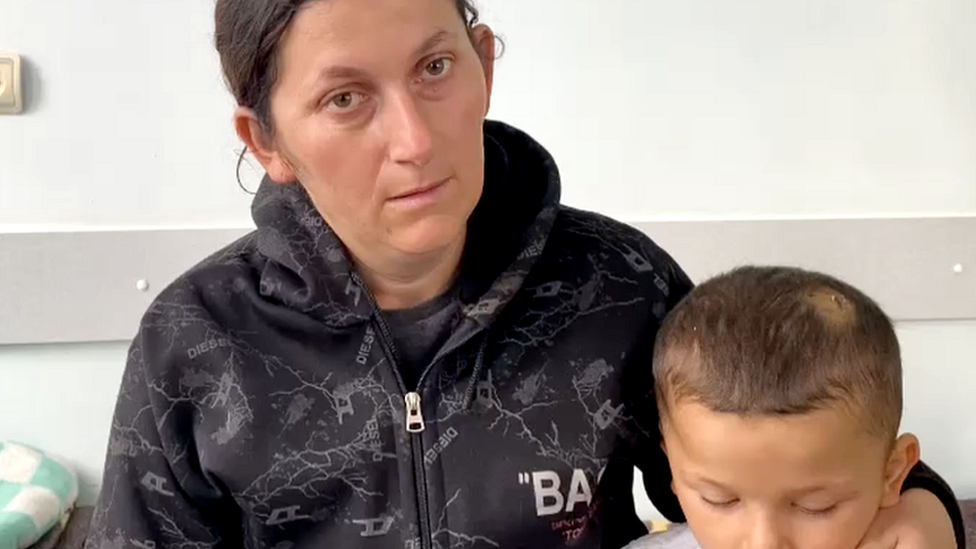
- Published26 September 2023
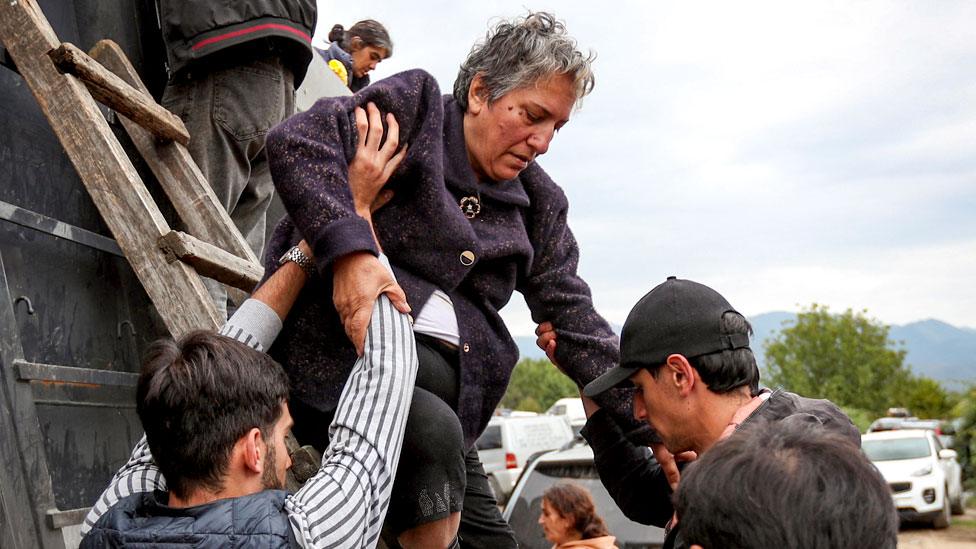
- Published23 September 2023
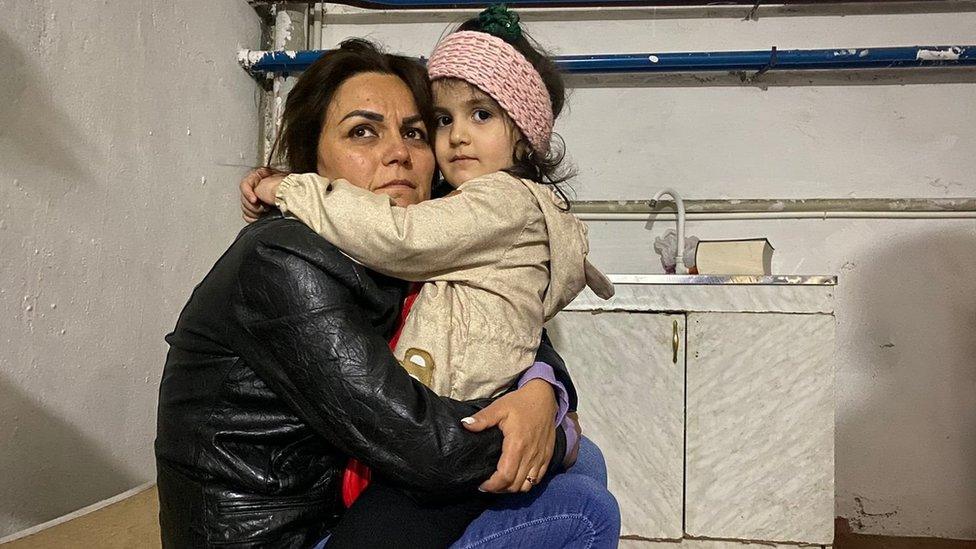
- Published26 September 2023
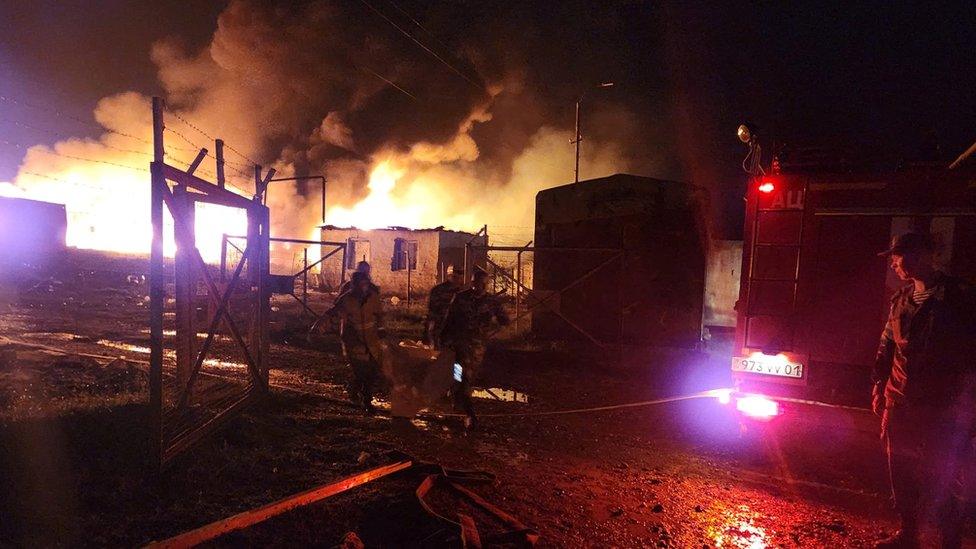
- Published24 September 2023
